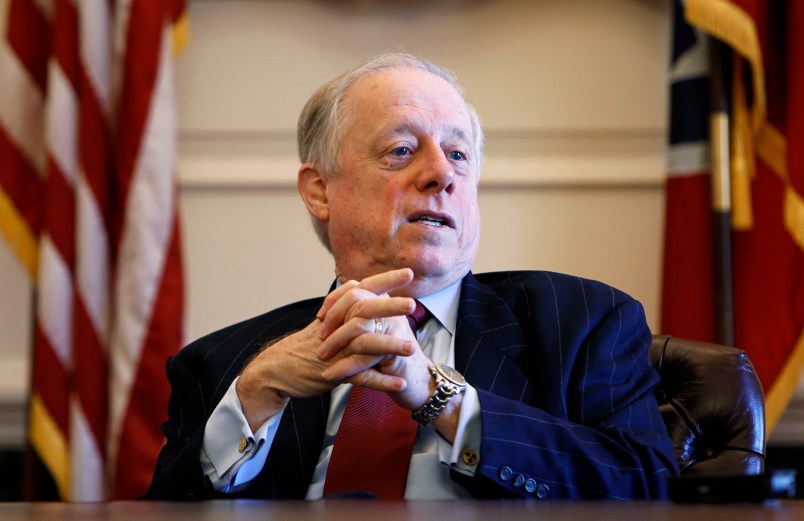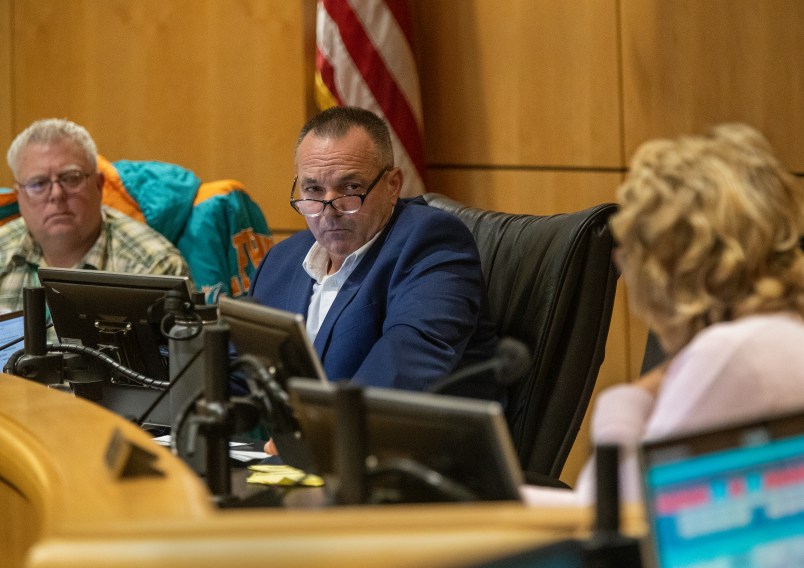NASHVILLE, Tenn. (AP) — Former Gov. Phil Bredesen, the last Democrat to win a statewide race in Tennessee, is considering a bid to succeed retiring Republican Bob Corker in the U.S. Senate.
In a statement Monday to The Associated Press, Bredesen said he is mulling an entry into the race after several people urged him to reconsider his initial statements that he had no interest in running.
“In the days ahead, I’m going to do some research, talk with people and carefully think this through,” he said. “I’ll make a decision quickly.”
Bredesen, 73, is a wealthy former Nashville mayor who was first elected governor in 2002. He had largely withdrawn from politics and public life since completing his second term in early 2011.
Bredesen acknowledged that it would take a vast amount of money to wage a successful bid.
“Set against that, I love solving problems and in Washington right now there is plenty of material,” he said.
Republican U.S. Rep. Marsha Blackburn jumped into the race shortly after Gov. Bill Haslam announced he wouldn’t run. Former Rep. Stephen Fincher is also considering a Republican bid. Several Democrats have expressed interest in running since Corker last month announced his decision to bow out, but Nashville attorney James Mackler is the only one who has been actively campaigning.
Bredesen praised Corker’s service in the Senate.
“We are of different parties and don’t always agree on issues, but I have long admired the way in which he puts the interests of Tennesseans and our nation ahead of political gamesmanship,” Bredesen said. “He educates himself on the issues and thinks independently about them, in exactly the way the founders of our nation intended.”
Bredesen narrowly won the 2002 governor’s race to succeed unpopular Republican Gov. Don Sundquist, who spent much of his second term trying unsuccessfully to pass a state income tax to help bridge a widening budget gap due to exploding costs of TennCare, the state’s expanded Medicaid program. The emotional legislative battle over the income tax sparked protests including a brick thrown through the window of the governor’s office at the Capitol.
“I came in at a time when people were honking their horns, and the fiscal state was a mess — and it’s not anymore,” Bredesen said as he was leaving office in 2011.
Bredesen found a way to stem the costs at TennCare by cutting 170,000 adults from the program and reducing benefits to thousands more.
Bredesen said in the interview that his refusal to consider himself a career politician enabled him to make decisions others might not have even considered.
“I came into it with a certain distance from the job in that if I ceased to become mayor or ceased to become governor, the world was not going to come to an end,” he said. “It would not be a fundamental blow to my self-image.”
Conventional wisdom had it that the painful cuts to TennCare would severely hamper his chances at re-election the following year, but Bredesen said his approach was: “If the chips fall and I’m not re-elected, I’d be unhappy for a month. But I’d be happy to be doing something else.”
Instead, he was re-elected in a landslide in 2006, carrying each of the state’s 95 counties.
But the TennCare cuts became an issue later, when health care advocates made the issue a rallying cry against Bredesen when he was under consideration to become President Barack Obama’s secretary of health and human service in 2011. That job ended up going to Gov. Kathleen Sebelius of Kansas.









